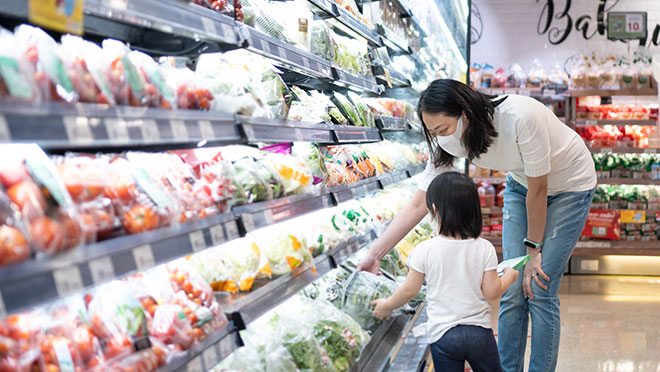How BCFB helped its members put food on the table

Food and beverage manufacturers hit hard by pandemic
Since the beginning of the pandemic, we've explored how different industries have been coping, with stories covering logistics, mining, and personal protective equipment (PPE).
This time, we're taking a look at the food and beverage industry. Manufacturers in this sector have had mixed fortunes over the last year, with restaurants hit hard and grocery stores having to deal with panic buying. But that's just the tip of the iceberg, as we found out when we spoke to James Donaldson, CEO of BC Food & Beverage (BCFB), a not-for-profit industry association representing B.C. food and beverage manufacturers.
A disruption to the 'ecosystem'
"The food industry is like an ecosystem," says James. "There's agriculture, ingredients, manufacturing, packaging, transportation and warehouses. And disruption of the magnitude that we saw last year exposed the vulnerability of it all. Both the public, and I think, the industry, took it for granted that food would always be there. But for the first time since the depression, there were empty shelves. The lasting memory I will have is lining up for 20 minutes to go grocery shopping only to find that there was almost no meat in the store."
BCFB members faced a serious crisis, with many businesses unable to access packaging, ingredients, trucks and PPE.
"The food industry has obviously used PPE for decades. But suddenly it wasn't available because we weren't considered an essential service," says James. "The resilience our members showed was remarkable. Despite all the restrictions in place, they found ways to safely get products out of the door, to protect their staff, and to ensure that food security was there."
Helping small businesses
James and his team realized that the best way they could help members was to filter through an ever-changing sea of information to provide clarity. "In B.C., our industry is made up of a huge number of small businesses. They just didn't have the bandwidth to hunt down all the information they needed," he explains.
"The other thing we did to help remove stress was provide easy access to PPE. We launched our own BCFB program, selling PPE at cost to processors and farmers across the country."
BC Hydro partnership helps members reduce costs
Another factor helping members through 2020 was BCFB's relationship with BC Hydro. "Food and beverage is not a high margin industry," says James. "We often see a 2% increase on costs every year and that definitely affects overall competitiveness. So when partners such as BC Hydro are helping members to save money, it really helps, especially for small businesses. BC Hydro has been great at helping the food industry as a whole to be more efficient."
Returning to normality
While the food industry wasn't initially classed as an essential service, BCFB members' did get much-needed access to vaccinations. "Lots of food processors were vaccinated early on and I'm really grateful that government recognized them as a priority," says James.
Looking to the future, James is hopeful in the long term. "There's been no empty shelves for quite a while now, which we're proud of. We're obviously very lucky in B.C. that we have so many great products produced right here. But we're not out of this yet and things could be tough through the summer, but there's a lot of optimism."
Get the latest COVID-19 advice for your business
Stay up-to-date with the latest BC Government advice on COVID-19, including their Support for Businesses information.
And of course, BC Hydro is here to help. Reach out to your Key Account Manager or Regional Energy Manager if you have any questions or concerns.